Life
-
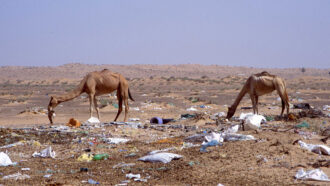 Environment
EnvironmentCamels have been dying after mistaking plastic for food
Plastic waste has been building up in the guts of some camels. It may now be killing off one percent of them in the United Arab Emirates each year.
By Asher Jones -
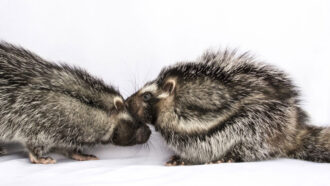 Animals
AnimalsAfrica’s poisonous rats are surprisingly social
Scientists confirm that the African crested rat can safely cover itself in poison and also find that the rodents may live in pairs — or even family groups.
-
 Brain
BrainLoneliness makes our brains crave people
An area of the brain that lights up when hungry people see food also revs up when lonely people see social activities.
-
 Brain
BrainA taste map in the brain is a scattering of tiny flavor islands
Some senses are highly organized in the brain. Taste is not. And that points to just how important it is.
-
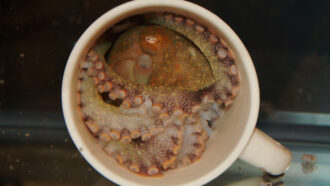 Animals
AnimalsTouching allows octopuses to pre-taste their food
Special sensory cells in their arms’ suckers sense chemicals. Those cells allow them to taste the difference between food and poison.
-
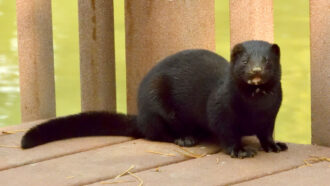 Animals
AnimalsUtah mink is first known case of the coronavirus in a wild animal
A wild mink appears to have picked up the novel coronavirus from farmed animals. Such spread in the wild does not appear common.
-
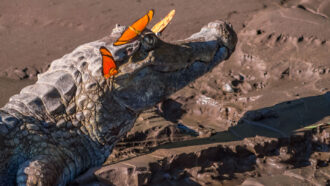 Animals
AnimalsScientists Say: Lachryphagy
Some insects land on the eyeballs of larger animals. They are seeking out the salt and proteins in the animal’s tears.
-
 Animals
AnimalsLet’s learn about sharks
This ancient group of fish can use scent and even electricity to detect their prey. And they fill an important niche in the ocean.
-
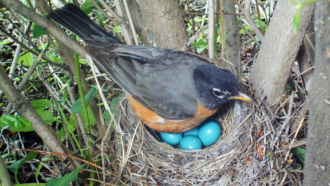 Animals
AnimalsScientists Say: Medullary bone
Medullary bone is a layer that forms inside bird and dinosaur bones. It’s a source of the calcium in eggshells.
-
 Psychology
PsychologyCan’t remember? Maybe you multitask too much between screens
Splitting your attention between devices can make it hard to create new memories, even when you’re not multitasking.
-
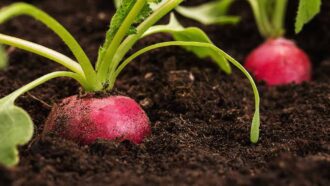 Plants
PlantsHow to grow your own science experiment
Does fertilizer help plants grow better? You might expect it to, but how can you know? This experiment will help you test it yourself.
-
 Oceans
OceansAnalyze This: Shipwrecks provide a home for bottom-dwelling fish
Fish have found a habitat in a submarine and freighter that sunk to the seafloor during World War II.